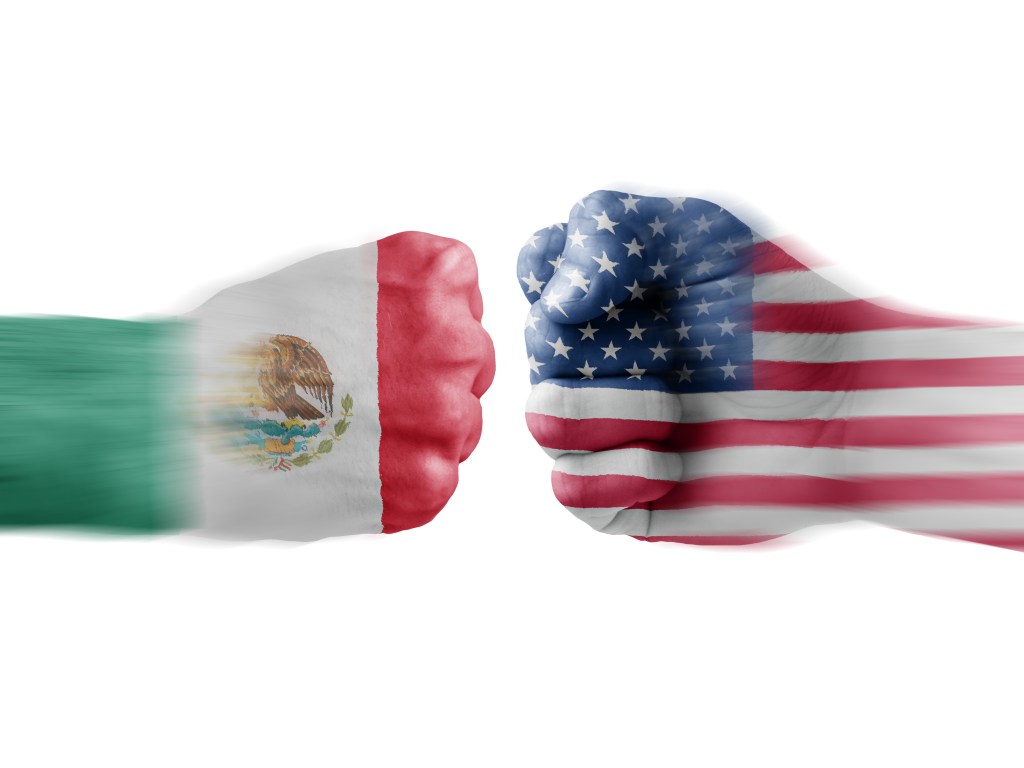
Ricardo Pascoe Pierce
The United States and Mexico are neighbors with increasingly politically conflicting issues. However, they are becoming more integrated and interdependent economically. What does the future portend for that relationship?

Mexico is moving its sympathies into the orbit of the sworn enemies of the United States. Therein lies the political confrontation. Mexico is exaggeratedly tolerant of authoritarian regimes in Latin America and the rest of the world. Mexico has become a defender, to the point of homage, of the three Latin American dictatorships: Cuba, Nicaragua, and Venezuela. The presence of Cuban and Nicaraguan troops in the Independence Day parade on September 16 is a deferential treatment never granted to U.S. or European troops.

The dealings with Cuba and Venezuela have reached the level of accepting and tolerating the presence and operation of their security and espionage elements in national territory. With the justification of the presence of Cuban doctors in hospital services, the Mexican government has transferred billions of euros (not dollars) as subsidies to the Cuban economy, including the shipment of millions of liters of oil.

Mexico has never openly condemned the Russian invasion of Ukraine and maintains a “neutral” position towards the conflict. This “neutrality” objectively translates into support for the Russian aggressor, having violated all international laws regarding respect for national sovereignty. The presence of a large group of Russian spies stationed in Mexico, together with the presence of Russian soldiers in a parade on September 16, shows the proximity and approval of a declared enemy of the United States.

A relationship of diverse complicities has existed and persists with China. A triangular relationship has been detected between the Mexican cartels, the Chinese government, and the Mexican government, which tolerates and encourages shady business dealings.

While the cartels imported fentanyl, the Mexican government allowed the import of Chinese steel and aluminum to then pretend that it was Mexican and sell it in the U.S. market. There is a spider web of complicity with China. The U.S. government has complained about both actions to the Mexican government, partly for violating the CUSMA/USMCA/T-MEC and the other for omission in customs by allowing the entry of fentanyl into national territory.

The CELAC meeting, held in Mexico as host, had the surprise presence via Zoom of Chinese President Xi Jinping, who greeted the attendees at its closing ceremony.

At the same time, Mexico’s economy is becoming increasingly integrated with that of the United States and is even its leading exporter, surpassing China. Eight hundred billion dollars in value are to be noticed. Along with this intense and growing exchange of goods and services, remittances are testimony to the millions of compatriots who send their support to relatives living in all the states of the Republic. This economic relationship simply has no substitute. Neither Russia nor China is an alternative for Mexico. China, for example, sells a lot to Mexico and buys very little from us. This relationship is entirely dysfunctional.

Mexicans living in the United States wish for an excellent relationship between the two countries. They are not strategic allies of Russian or Chinese interests. Much less Cuba or Nicaragua. So, the dysfunctionality of the Morena government’s proposal is clear: to go against the strategic interests of the United States is to go against the strategic interests of Mexico and the millions of compatriots living in the United States. What moves Morena is its ideological proposal: it prefers authoritarian regimes because that is, deep down, its preference as a political model for Mexico.

So, how can the contradiction between the prevailing authoritarian ideology and the model of an open market economy be resolved? In this world, there is no room for both proposals. Something will have to burst at the most fragile point.

[email protected]
@rpascoep
Further Reading:
